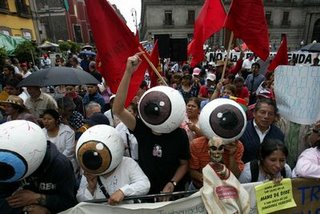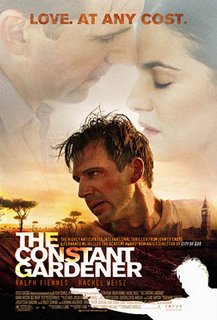
When I first came to Central America in the late eighties,
Livingston was something of a legendary destination. Sitting like a cold sore on the upper lip of the Rio Dulce, it represents Guatemala's small slice of the demographic eclecticism that is the Bay of Honduras. Even in a continent so full of the descendants of displaced nations that set out to make a fresh start of it, the population make-up of this region is truly fascinating.
In 1635 some slave ships out of Nigeria bound for the plantations in the Windies were shipwrecked near St Vincent. Through intermarriage with native Caribs − pretty much the last remaining indigenes in the Caribbean − the
Garinagu people were formed: the "black Caribs". Their language is known as
Garifuna and these days, so are they. (One of the names the island natives had for themselves was
Kalipuna.)
Raids on neighbouring islands pissed off the Brits, who duly invaded St Vincent and eventually forced the black Caribs to surrender in 1796. Dividing them up into 'enemies' that looked more black than Amerindian and the 'misled' remainder, the British authorities deported 4000 of the former group to
Roatán, a small island off the north coast of Honduras.
Just 2000 had survived the trip, but the numbers were soon growing and the Garifuna diaspora continued to the mainland. Today there are around 200,000, spread around both sides of the entrance to the
Bay of Amatique. Livingston itself was founded in 1795, which suggests that the Garifuna already had a foothold in Central America before the loss of their tribal homeland.
Their leading cultural export today is
Punta, a musical form which has links with an ancestral West African beat, appropriately named Bunda. ('Buttocks'). (Some examples
here.)
Just to the north is Belize's southern exit-port Punta Gorda, around which
Mopan and Kekchi Maya settled in the 1880s, escaping forced labour and taxation in the Petén region of Guatemala. There they joined a sizeable contingent of Confederate Civil War veterans dubiously persuaded to re-create the lost world of the Old South in the Toledo district's tropical climes.
There now seem to be many more of these Mopan and Kekchi over the border in Livingston and alongside the Rio Dulce. In the café-bar called
BugaMama where we stopped for breakfast, the posters warning of the dangers of 'SIDA' were depicted
cartoon couples in indigenous dress speaking their own languages. Livingston has one of the highest incidences of HIV in Guatemala, which serves to confirm many of the prejudices of southern Guatemalans regarding their comparatively isolated compatriots of African descent.
Unfortunately we didn't stick around in town for a more substantial meal, otherwise I would have been tempted to try
Tapado, the most famous Garifuna dish - a fabulous fish and seafood stew made with both green and ripe plantains, yams, tomatoes and herbs, all simmered in coconut milk.
V's stomach was a bit sensitive that morning anyway. The night before we had dined at
Los Delfines next to the municipal dock in
Puerto Barrios. You pass through a tunnel of wooden slats lined with inflated rubber rings and end up at a table on a platform perched on stilts over the calm waters of the Caribbean. During the meal enormous black rats poked their twitching snouts out of the holes in the corners and cockroaches that you could wear as sandals scurried around between the gaps in the boards.
Felipe and I had a delicious
ceviche. V's breaded prawns certainly looked yummy, but she was up most of the night. The water taxi ride across the Bay of Amatique had also been a little rough. Before reaching Livingston we had to pass through a thick grey wall of precipitation − it was rather like going underneath a waterfall, except that it lasted for about ten minutes.
I find that the locals up here have the kind of intellectual curiosity more typical of Belizeans than Guatemalans. Unlike Belize though, Livingston hasn't really kicked on since the eighties. Perhaps it's because it remains quite hard to access overland, and maybe too because many of the tourists visiting
Izabal from highland Guatemala can now catch a first class bus from the capital direct to the Lake and the
Castillo San Felipe.
But in doing so they miss out on the chance to explore the
Rio Dulce from its very entrancing entrance - surely some of the most spectacular scenery Guatemala has to offer. Someone once told me that they made some of the Tarzan movies here in the 30s, but I haven't yet been able to corroborate this on the IMDB.
Also, just to the north of Livingston, is Guatemala's one and only
white sand beach, which is usually a lot less crowded than many of the black sand beaches along the Pacific coast.
I'll sort out and publish my pics from the river in due course, but meanwhile, here's a selection from our day in
Livingston.
(Incidentally, the title of this post comes from a
great track by a Guatemalan band called
Radio Zumbido.)
 "It takes something special for us to have a bad day," observed one of the river policemen on the Sky Clipper this morning as he looked around for rucksack bombers.
"It takes something special for us to have a bad day," observed one of the river policemen on the Sky Clipper this morning as he looked around for rucksack bombers.


 The Beeb had an interesting story yesterday about a
The Beeb had an interesting story yesterday about a 




 The two novels I took with me to read in Guatemala could not have been more different: Michel Houellebecq's Platform and Carlos Ruiz Zafón's La Sombra del Viento (The Shadow of the Wind). It strikes me now that the strengths of each of these best-sellers are very much the weakness of the other.
The two novels I took with me to read in Guatemala could not have been more different: Michel Houellebecq's Platform and Carlos Ruiz Zafón's La Sombra del Viento (The Shadow of the Wind). It strikes me now that the strengths of each of these best-sellers are very much the weakness of the other.
 Phew. I was beginning to wonder when I'd get to see such an excellent movie again. There might be a certain flimsiness in the detail, but as both a love story and a captivating parable about the treatment of the poor and powerless by the rich and powerful, The Constant Gardener is highly effective.
Phew. I was beginning to wonder when I'd get to see such an excellent movie again. There might be a certain flimsiness in the detail, but as both a love story and a captivating parable about the treatment of the poor and powerless by the rich and powerful, The Constant Gardener is highly effective.


 Recovering from the first of my two birthday dinners this morning.
Recovering from the first of my two birthday dinners this morning.
